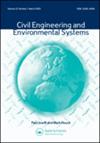管理与关键基础设施系统相关的灾害风险:用于研究和政策指导的系统级概念框架
IF 1.1
3区 工程技术
Q3 ENGINEERING, CIVIL
引用次数: 5
摘要
本文从社会影响的角度提出了关键基础设施系统灾害风险的新概念框架。许多关于基础设施可靠性的研究都集中在与技术系统或人类应对相关的具体问题上。该框架着眼于基础设施服务的最终目标——社会功能——提供了一种新的方式来理解这些更集中的研究领域是如何联系起来的,以及每个领域当前的想法。在概述框架之后,依次讨论每个组件,包括物理系统的初始构建;事件发生;服务中断;服务提供者响应;用户调整以保留或创建所需的服务;以及社会功能的赤字。该框架的可能用途包括催化和指导一个系统的研究议程,最终可能导致一个计算框架,并在公用事业和应急管理组织以及更大的社区内激发关于弹性的讨论。本文章由计算机程序翻译,如有差异,请以英文原文为准。
Managing disaster risk associated with critical infrastructure systems: a system-level conceptual framework for research and policy guidance
ABSTRACT
This paper presents a new conceptual framework of the disaster risk of critical infrastructure systems in terms of societal impacts. Much research on infrastructure reliability focuses on specific issues related to the technical system or human coping. Focusing on the end goal of infrastructure services – societal functioning – this framework offers a new way to understand how those more focused research areas connect and the current thinking in each. Following an overview of the framework, each component is discussed in turn, including the initial buildout of physical systems; event occurrence; service interruptions; service provider response; user adaptations to preserve or create needed services; and the ending deficit in societal function. Possible uses of the framework include catalysing and guiding a systematic research agenda that could ultimately lead to a computational framework and stimulating discussion on resilience within utility and emergency management organisations and the larger community.
求助全文
通过发布文献求助,成功后即可免费获取论文全文。
去求助
来源期刊

Civil Engineering and Environmental Systems
工程技术-工程:土木
CiteScore
3.30
自引率
16.70%
发文量
10
审稿时长
>12 weeks
期刊介绍:
Civil Engineering and Environmental Systems is devoted to the advancement of systems thinking and systems techniques throughout systems engineering, environmental engineering decision-making, and engineering management. We do this by publishing the practical applications and developments of "hard" and "soft" systems techniques and thinking.
Submissions that allow for better analysis of civil engineering and environmental systems might look at:
-Civil Engineering optimization
-Risk assessment in engineering
-Civil engineering decision analysis
-System identification in engineering
-Civil engineering numerical simulation
-Uncertainty modelling in engineering
-Qualitative modelling of complex engineering systems
 求助内容:
求助内容: 应助结果提醒方式:
应助结果提醒方式:


